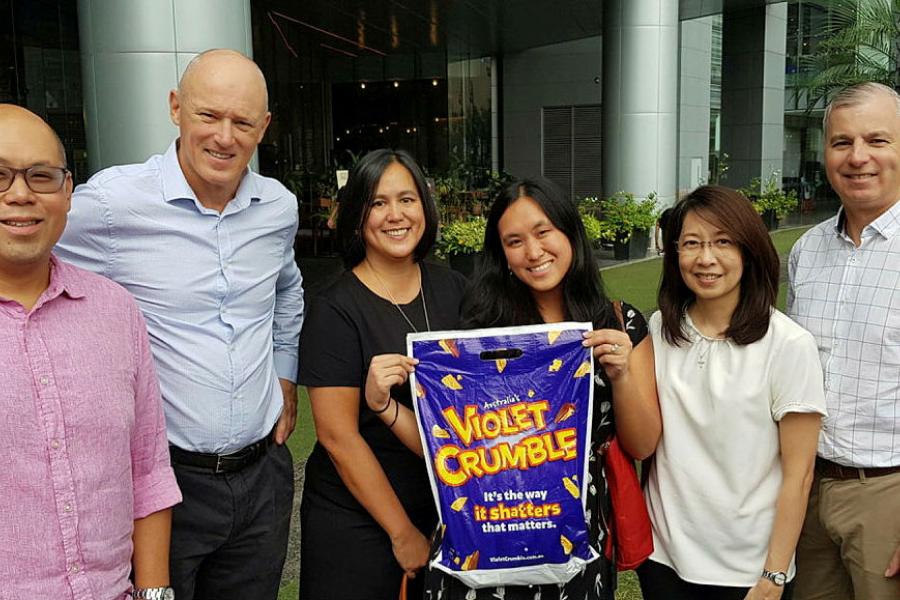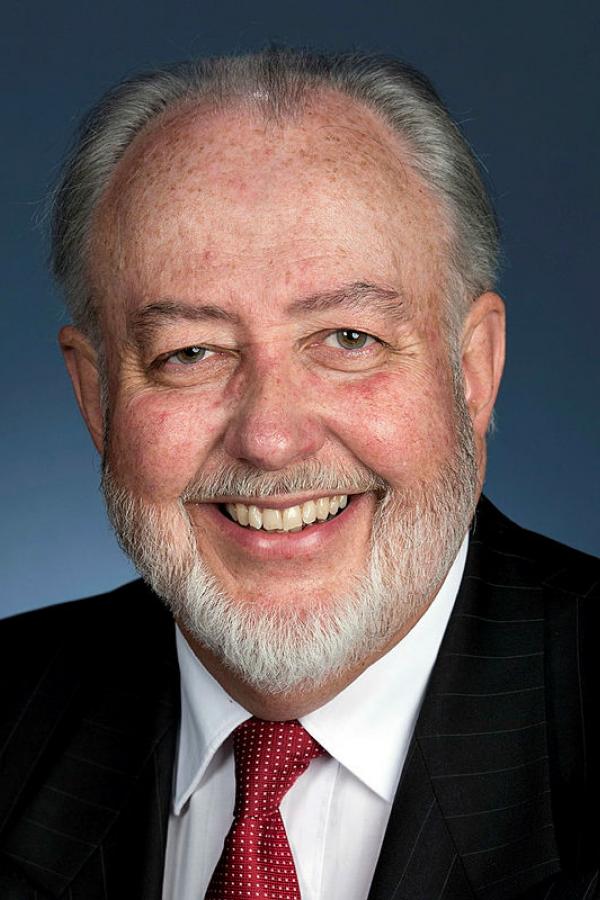Steven J. Robinson AO, Ambassador to the Philippines
This year – 2021 – we celebrate 75 years of Australia and Philippine diplomatic ties. Since 1946, our strong and enduring friendship has developed into a mature and wide-ranging partnership grounded on shared values and a commitment to peace, security and prosperity in our region. Indeed, the depth of our friendship and partnership has stood firm – tested through the years by challenging times such as the current global pandemic.
Like all countries, the Philippines has suffered the economic impact of COVID-19. Nevertheless, its economic credentials remain solid. Throughout the pandemic, the Philippines has maintained investment-grade credit ratings, a stable macroeconomic outlook and positive business sentiment.
Australia and the Philippines already enjoy strong trade and investment links. In 2019, bilateral trade was worth $5.9 billion. Australia has become the Philippines’ top source of beef and lamb, second top source of wines, top supplier of fresh table grapes, citrus and stone fruit (during the Southern Hemisphere season) and sixth top source of dairy. Australian food products are becoming more accessible in supermarkets. Recently, our Embassy in Manila facilitated the entry of Woolworths brand of products to the Philippines, including in Robinsons and Rustan’s supermarkets and their e-commerce platform.
There are now over 300 Australian companies in the Philippines employing 44,000 Filipinos. These companies cover a range of sectors including business process outsourcing (Telstra, QBE, Macquarie, Canva and Atlassian), mining (OceanaGold, Red 5, Medusa Mining, and Orica), ship building (Austal), services (Site Skills Training and Aurecon) and major infrastructure (Populous, Leighton Asia, BMD Construction and Macquarie Capital) to name a few.
Education ties between our countries are growing, and Australia continues to be one of the top preferred study destinations among Filipinos. There were around 16,075 Filipino students enrolled to study in Australia in 2020, the ninth highest number of foreign students.
Philippine investment to Australia is also expanding in niche areas, driven by conglomerates looking to diversify investments, secure their supply chains, and access advanced products and technology, particularly in renewable energy and agribusiness. As at the end of 2020, Philippine investment in Australia was worth $1.4 billion.
Yet while our commercial ties are already strong, our Embassy in Manila is busily working to expand these further.
There is significant potential in the Philippine market as it continues to emerge from the pandemic. With Australia and the Philippines members of the ASEAN Australia New Zealand Free Trade Agreement (AANZFTA) up to 97 per cent of our goods trade is tariff free under this agreement. Our proximity to the Philippines and reputation as a supplier of quality goods and services are other important factors which mean Australian business is well placed to penetrate this market of 109 million people.
To give some examples, in agri-foods, the Philippines is a $20 billion import market, with a target consumer population of around 30 million for imported premium and quality products. In education, there is a strong appetite from young Filipino professionals and companies to upskill in priority sectors (information and communications technology, manufacturing, logistics, financial services and health) and there are opportunities for Australian providers to offer professional development programs through short online courses or micro-credentials.
Australian businesses could also venture into digitalisation and automation opportunities in digital services, including solutions to expand e-commerce platforms, improve cybersecurity and boost online education. Challenging living and environmental conditions also present opportunities to design smart cities, liveable spaces using technology to improve quality of life.
The Philippine’s “Build, Build, Build” agenda presents opportunities for Australian design, construction, and energy companies with $208-236 billion having been allocated by the Philippine government for new roads, railways, airports, ports, energy and utilities, oil and gas pipelines and water infrastructure.
While the current conditions are challenging, these opportunities are present right now and we have seen Australian business already start to react. Our Embassy in Manila is committed to working with Australian and Philippine stakeholders to take advantage of these opportunities and ensure our trade and investment links continue to grow.
Hitting the sweet spot: iconic Australian brand expands to the Philippines
Robern Menz is a 150-year old family business spanning four generations. Today the company is led by brothers Phil and Richard Sims. Based in South Australia, it is the largest manufacturer of choc honeycomb in Australia and also produces the iconic Menz FruChocs and Crown Mints. In 2018, it bought another iconic Australian brand “Violet Crumble” from Swiss-owned Nestle.
In late 2019, the company joined Austrade’s Excelerate Program, a customised service for industry-leading businesses to help them succeed in export markets. It was Austrade Manila’s first Excelerate client and needed assistance in finding a local partner for their Violet Crumble brand. Austrade Manila provided market research, helped qualify potential importers/distributors as well as organised and joined their visit program.
From among the recommended companies, Robern Menz signed an agreement with Kidstuff Marketing/Candy Corner which now distributes and markets Violet Crumble in the Philippines.
Robern Menz benefited from the Philippines’ Ease of Doing Business Law, which fast-tracked the registration of its products with the Food and Drug Administration to less than a week. Despite the challenges brought about by the pandemic, Violet Crumble has become widely available in leading retail stores nationwide, including online. Highly visible marketing campaigns are also helping boost brand awareness among consumers in the Philippines. Robern Menz says that its sales in the market continue to grow.
In photo from left to right: Candy Corner/Kidstuff Marketing President Ricky Andres, Robern Menz CEO Philip Sims, Candy Corner General Manager Rosemarie Andres, Candy Corner Business Development Manager Rina Andres, Austrade Manila Senior Business Development Manager Liza Bautista and Robern Menz Export Manager Henry Fowlds.


